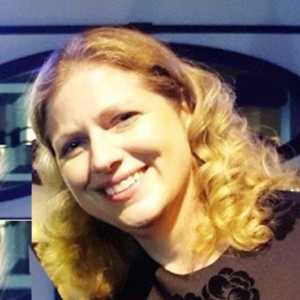What is Your Why for Learning?
Guest writer Kari Bogdan creates this week’s blog on lifelong learning with her article, “What is your why for learning?”
“You can have anything you want if you want it badly enough. You can be anything you want to be, do anything you set out to accomplish if you hold to that desire with singleness of purpose.” Abraham Lincoln
The reason(s) why we choose to learn should be personal and unique as each of us. Before you start on the path to learning something new, try setting an intention. Setting an intention is different from setting a goal for learning, because it focuses on “the why” and your return on investment. It is about the person, place, thing or maybe even the feelings that you are striving for. It’s about finding purpose.
The odds of accomplishing your goals will be more realistic and more satisfying if you define your intentions. Here are things to remember when you begin to determine your purpose for learning:
- Take time to reflect. When you consider your purpose, a good place to start is asking yourself some questions like, “What do I value?” “What do I believe?” “Who and what are the things most important to me?” This video could be helpful as you start to explore your why: What is the purpose of learning? 1 https://youtu.be/8BILZNnz0uE
- Shift any limiting beliefs 2. If you have doubts about what you can achieve, you will not able to get very far. Get out of your own way.
- Make sure it comes from a positive place 2. Your intention should start with “I will”, rather than “I will not.” Research shows negative emotions can overpower their positive counterparts. 3
- State your intention 2. Write it down. This will help you be accountable and take ownership. It can also serve as a reminder if you post it somewhere that you can read it each day. You may even want to tell someone who cares about you about your intension.
- Be clear 2. The more specific you are, the more focused you will be. Remember, it’s about results.
- Keep it simple 2. It should be a sentence. Like learning, intentions can also be broken down to make them more manageable. You can start with your ultimate intention. Then, set a daily, weekly or monthly intention that will help you get there.
Once you declare your purpose, continue to reflect on it. You may even find that your purpose will change as you move forward. Remember, that through the process of learning you are growing. Do not be surprised if your “why” becomes something different along the way.
References
- Harvard University Online. (2017). What is the purpose of learning? Youtube.com. Apr 19, 2017. Accessed November 28, 2022: https://youtu.be/8BILZNnz0uE
- Houlis, A. (2021). The power of setting intentions — and how to do it correctly. Self Magazine. Accessed November 28, 2022: https://www.shape.com/lifestyle/mind-and-body/mental-health/how-to-set-intentions
Vaish A, Grossmann T, Woodward A. (2008). Not all emotions are created equal: The negativity bias in social-emotional development. Psychol Bull. 2008 May; 134(3): 383–403. Accessed November 28, 2022: https://www.ncbi.nlm.nih.gov/pmc/articles/PMC3652533/

